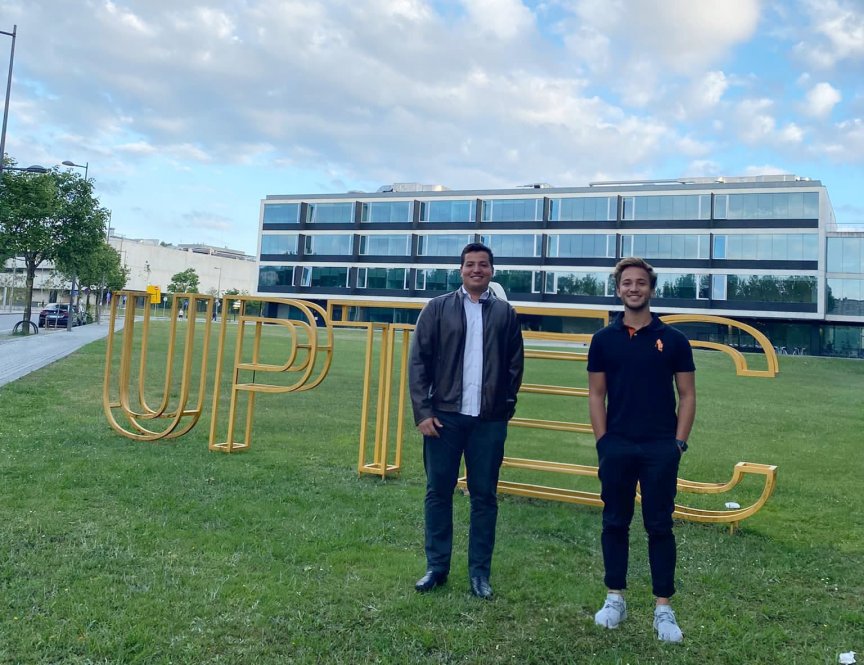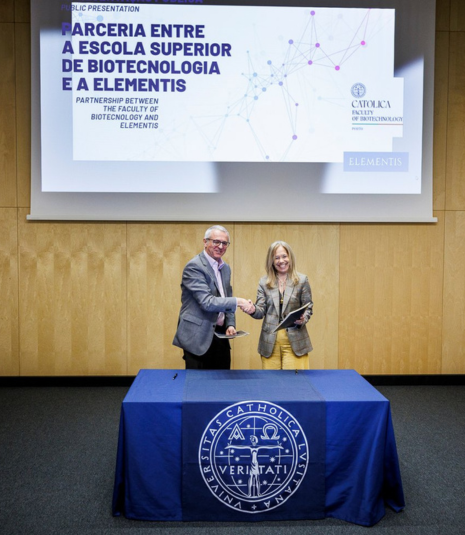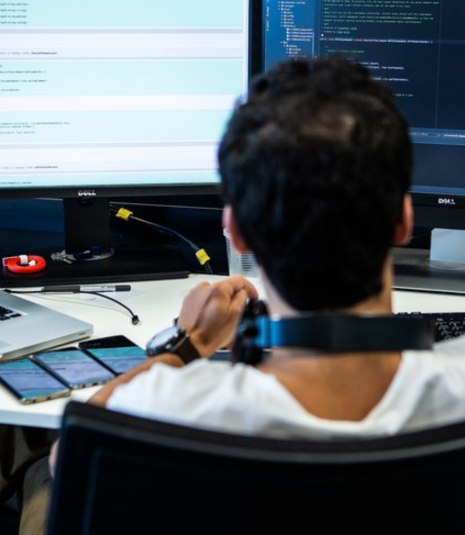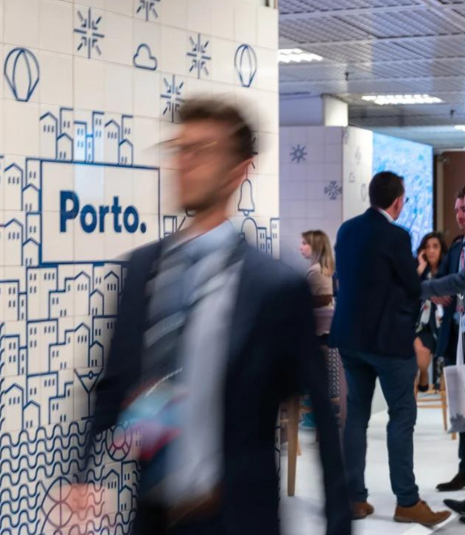Hollow turns complex lessons into 10-minute videos to help university students
Platform created in Porto during the pandemic provides more than 500 classes in economics, management and engineering to end bad grades in university education.

Hollow turns complex subjects into 10-minute lessons for university students. College subjects such as statistics, accounting and microeconomics are condensed into recorded videos and personalised study plans can be created. The idea born in Porto two years ago, in the middle of a pandemic, is reaching some of the main Portuguese universities, wants to enter training for companies and, for 2024, already has Spain in its sights.
"Our goal is to transform the way people learn, providing a personalised, collaborative and student-centred learning experience," Guilherme Calassi (chief technology officer) and Victor Souza (executive chairman), the two Brazilians who founded Hollow, told ECO. "With the pandemic and remote learning, we realised the importance of promoting a more inclusive, flexible and adapted education to the current context. Realising the need to offer support to students, we started creating a website with videos and content that could help them", they recall. The idea is to support universities.
Currently, Hollow has free videos in eight subjects: maths, statistics, macroeconomics, microeconomics, accounting and financial reporting, management control, operations research and pre-maths (summary of secondary school content). To collect the information, the startup's team checks the curriculum of universities and relies on the support of student associations to access subject materials. The data is essential for the creation of personalised syllabuses, which are also available on a subscription basis.
"The syllabus is subdivided into smaller topics, allowing the content to be approached in a fragmented way. Instead of one-hour lessons, the lessons are divided into several sessions of 5 to 10 minutes. This way, students review the lessons more often and assimilate the knowledge more consistently over time," the founders explain. With a team of 12 people (including the founders), the startup has more than 2,000 active users and has received €15,000 in support from a Brazilian business angel.
The power of education and the difficulties of being foreigners
Victor and Guilherme moved to Portugal when it was time to go to university. "After completing secondary school in Brazil, I had the opportunity to enter the University of Porto and fulfil the great dream of being the first person in my family to enter higher education. When I arrived in Portugal, I had great expectations about how my learning process would be to become an economist", recalls Victor Souza. The co-founder recalls having to go to a public and a public school between the ages of 12 and 14 "to level up with the rest of my classmates". Only a merit scholarship allowed him to attend public school
Guilherme specialises in technology. He had to learn self-taught and did a "total immersion in several bootcamps of large technology companies with a presence in Brazil". There, "I was able to get to know the ecosystem much more and see the power that technology has in transforming the world and its applications as a fundamental tool in solving a plurality of problems".
With the move to Portugal came several problems. "We realised that many traditional approaches and practices were misaligned with the needs of the current generation. Education was still predominantly classroom-focused, with less emphasis on student protagonism and active participation. In addition, the additional support available relied mainly on student unions and private tutors, which limited options and made access to extra resources more difficult."
As entrepreneurs, "we faced the challenge of being outsiders introducing change in an established environment. Demonstrating our credibility and expertise required perseverance and a strategic approach to gain the trust of those involved."
Secondary education and entry into Spain
Hollow develops the entire platform in-house and relies on the help of the OpenAI foundation for solutions involving artificial intelligence. While universities are on holiday, the team is creating a solution for corporate training programmes and aims to reach secondary education by the end of this year.
"We intend to create the first national platform that supports students in preparing for the national exam, using gamification, machine learning and advanced technology to help students from all schools to enter the college and the course of their dreams", says Victor Souza. In higher education, the startup aims to reach 10 universities and reach more than 5,000 students.
The company also intends to raise 120,000 euros in a pre-seed round to boost the company's growth. By 2024, Hollow wants to reach Spain, where "there are more than 1.5 million students" and there is the "highest dropout rate in secondary education in the European Union. "Students are open (and eager) for new solutions," he predicts. International expansion will mean hiring more people to summarise 10-minute lessons to boost student success.




